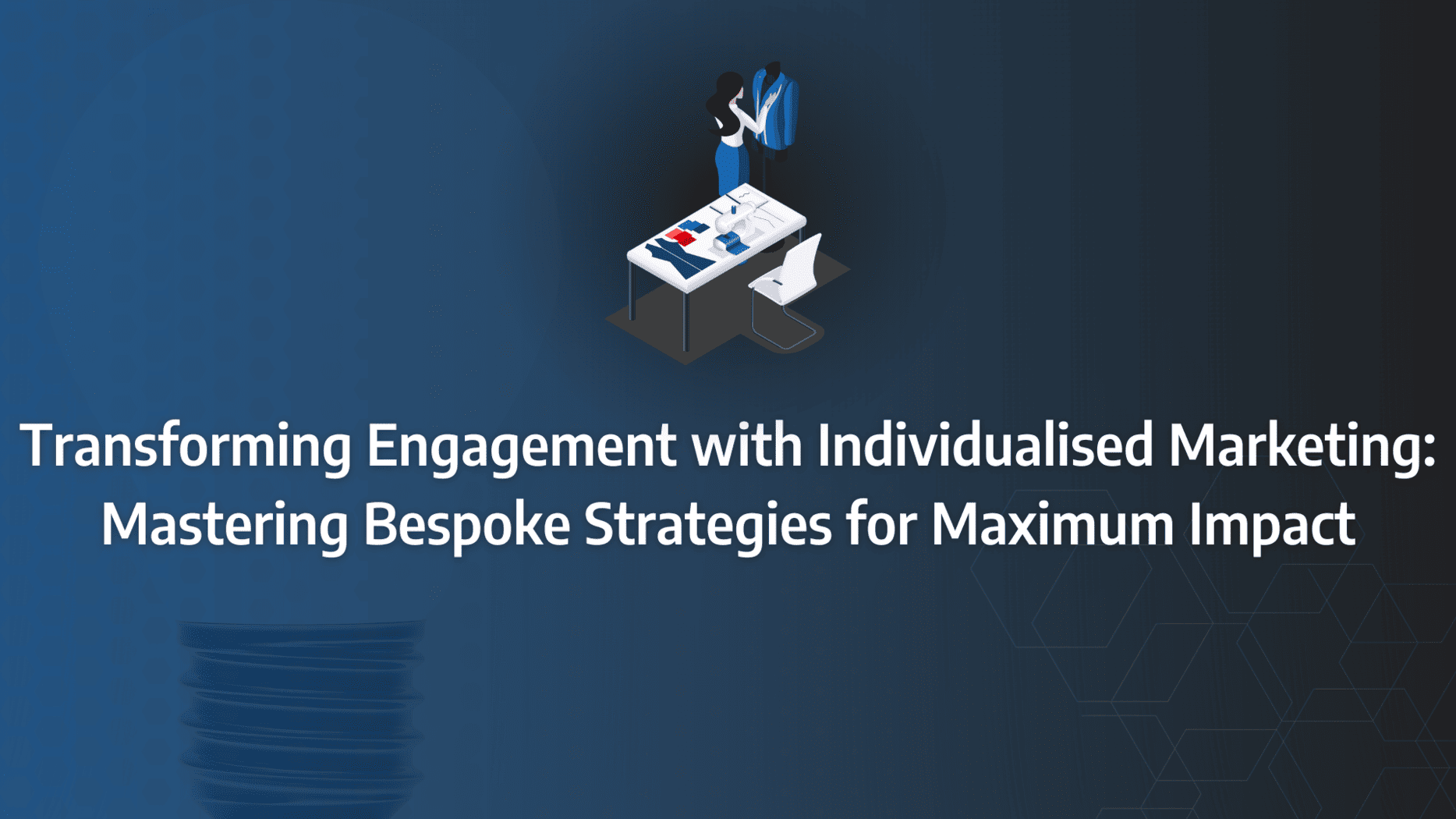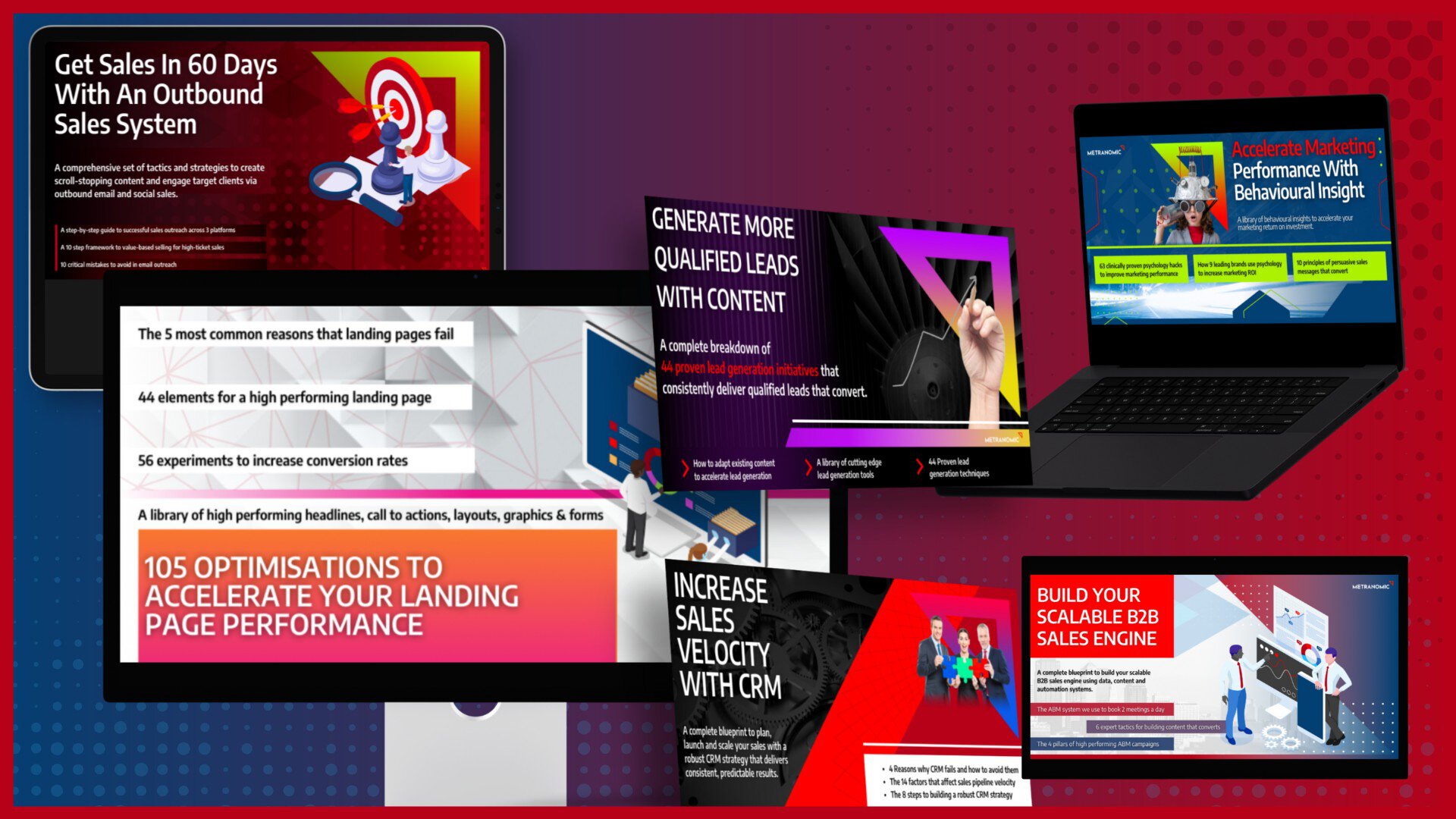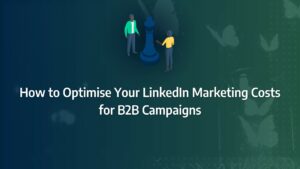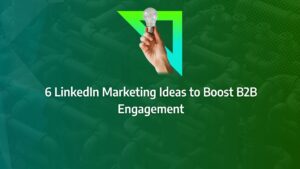Imagine a world where your marketing campaigns resonate with each customer on a deeply personal level. A world where generic messages are a thing of the past, replaced by bespoke strategies that speak directly to individual needs, preferences, and behaviours. This isn’t just a vision for the future—it’s the reality of individualised marketing.
In an era where customers are bombarded with countless messages, standing out requires more than just creativity; it demands precision. Individualised marketing is your gateway to transforming engagement, turning passive observers into active participants who feel truly understood. By mastering bespoke strategies, you can unlock the full potential of personalised interactions, driving higher engagement, loyalty, and conversions.
- Shift to Personalisation: Embrace individualised marketing to replace generic strategies, tailoring your campaigns to resonate with each customer’s unique preferences and needs.
- Data-Driven Insights: Leverage data and analytics to gain deeper insights into customer behaviour, enabling more effective segmentation and personalised interactions.
- Implement Bespoke Strategies: Follow a step-by-step approach to integrate individualised marketing into your overall strategy, from data collection to AI-driven personalisation.
- Overcome Common Challenges: Address challenges such as data privacy concerns and the complexity of personalised campaign management with practical solutions and the right tools.
- Utilise Advanced Tools: Explore technological platforms and AI-driven tools that facilitate the execution of bespoke marketing strategies at scale, enhancing your campaign effectiveness.
What is Individualised Marketing?
Individualised marketing refers to a marketing communication approach that is tailored specifically to meet the unique needs and preferences of individual customers. It relies heavily on technology to create a customised marketing strategy for each consumer. Often referred to as personalised marketing, this strategy involves directly responding to the specific demands of consumers, enabling suppliers or manufacturers to deliver customised products or services.
In the current digital age, information technology plays a pivotal role in making individualised marketing possible. Consumers can interact with brands through various digital touchpoints, such as websites, mobile apps, or customer service call centres, where they can communicate their preferences directly. This interaction allows businesses to deliver personalised experiences that reflect the customer’s individual tastes and requirements.
The Importance of Individualised Marketing
With an ever-growing array of choices in today’s marketplace, consumers are increasingly looking for products and services that reflect their unique preferences, rather than settling for generic offerings. This is where individualised marketing comes into its own. By focusing on the specific attributes of each customer, businesses can create more meaningful and relevant interactions.
Technological advancements, particularly in tools like CRM (Customer Relationship Management), have revolutionised how companies implement personalised campaigns. These systems enable businesses to go beyond broad-based promotions and instead craft experiences tailored to an individual’s past behaviour, preferences, previous purchases, and feedback. This level of personalisation ensures that the customer feels recognised and valued, enhancing the brand’s ability to connect on a deeper, more personal level.
By adopting an individualised marketing approach, brands can differentiate themselves in a crowded market. Customers are far more likely to engage with a business that makes the effort to connect with them personally, which can ultimately drive loyalty and long-term success.
What Matters Most?
Creating personal connections with your audience is crucial for fostering brand loyalty. Clients typically find that leveraging customer insights to develop a culture focused on individualised experiences enhances overall satisfaction. Additionally, using storytelling to create emotional resonance often leads to deeper connections with customers, making marketing efforts more effective.Get In Touch
What is the difference between personalized and individualized?
Personalisation
The advent of personalised marketing strategies means brands can now tailor their messaging with a detailed understanding of the customer. Personalisation ranges from a simple greeting like “Hi Ellie, welcome back” on a website, to more intricate changes in imagery and button colours. When executed well, personalisation offers a more humanised and welcoming experience, much like a shopkeeper remembering your name and preferences in a local boutique. However, when done poorly, it risks coming across as intrusive or “creepy”, especially if the messaging feels overly familiar or robotic.
Traditionally, personalisation was limited to face-to-face interactions, but technology has expanded these capabilities. Businesses can now use data from past purchases, browsing history, and even abandoned shopping carts to craft a customised marketing strategy that anticipates customer needs. While personalisation is highly effective, it remains distinct from individualisation due to its more limited scope in data usage.
Individualisation
Individualised marketing takes personalisation to a more sophisticated level by treating each customer as a unique entity, or a “segment of one.” Unlike personalisation, which might rely on more general insights, individualisation depends on an intricate combination of data points to craft bespoke experiences for each user. For businesses to fully implement this strategy, they must leverage two separate data streams: the first based on what is already known about the customer, and the second gathering as much real-time behavioural data as possible.
Top Tactics and Techniques for Individualised Marketing
Custom Video Messages
In today’s fast-paced digital world, capturing your audience’s attention is a challenge—especially considering the average online reader disengages within 15 seconds or less. This is where video content, personalised with custom messaging, becomes invaluable. By incorporating individualised marketing into your video strategy, you can engage customers on a deeper level, increasing retention and interaction.
You might have encountered viral examples, such as those quirky holiday elf videos where users upload a photo of themselves to watch a personalised animation. On a more practical level, social media platforms now enable videos that greet users by name or use personalised information drawn from their profiles.
While this form of customisation is impactful and memorable, it can be labour-intensive without the right tools. To ensure scalability, it’s crucial to invest in automation technologies that allow for the seamless creation of customised marketing strategies at scale.
Source: Smart Insights
Fear of Missing Out (FOMO)
FOMO has emerged as one of the most effective psychological triggers for driving conversions. Humans are naturally wired to avoid missing out on opportunities, and individualised marketing capitalises on this instinct. By incorporating FOMO messages into your e-commerce strategy—such as alerts showing how many people are viewing a product or have recently purchased it—you create a sense of urgency.
These personalised campaigns are brief and impactful, often requiring minimal effort from marketers thanks to automation. With this technique, businesses can nudge customers towards completing their purchases before they leave the site, ultimately increasing conversion rates without overwhelming the customer.
Product Recommendations
Personalised product recommendations are a tried-and-true tactic, and for good reason—they work. Using data analytics to understand consumer preferences, this approach tailors product or service recommendations to each individual.
For instance, if a customer has recently watched several drama films, it wouldn’t make sense to recommend a light-hearted comedy next. The recommendation engine, powered by one to one marketing strategies, ensures customers are presented with relevant options based on their interests.
This personalised approach extends beyond suggestions; customers can also provide feedback on their recommendations, allowing businesses to refine and improve future recommendations. This level of individualised marketing offers customers a more curated experience, reducing the noise and making their buying decisions easier.
Targeted Emails
Email marketing continues to evolve, with personalised campaigns being at the forefront of its transformation. By harnessing personalised marketing strategies, brands can send highly relevant, targeted emails that cater to specific customer groups based on individual preferences or behaviours.
Collecting first-party data through sign-up forms or past interactions is a crucial first step in this process. Customers may provide information ranging from their birth date to their interests, and this data can be segmented to power hyper-relevant email marketing. For example, a clothing retailer might use this information to send personalised fashion recommendations based on a customer’s age or style preferences.
These personalised emails not only increase engagement but also foster a deeper connection between the brand and the customer, ensuring your customised marketing strategy is more effective and meaningful.
Our Tactical Recommendations
From our experience, segmenting and analysing customer data is essential for crafting tailored campaigns that resonate. We often discover that engaging with customers on their preferred platforms leads to more individualised experiences and increased engagement. We recommend implementing A/B testing to continuously refine your personalised marketing efforts, ensuring they effectively meet customer needs.Get In Touch
What is in a individualised marketing plan?
One-to-One Marketing Strategy Components
Customer Segmentation: The Foundation of Personalisation
A successful one to one marketing strategy begins with precise customer segmentation. This critical step involves dividing your audience into distinct groups based on characteristics such as behaviour, purchase history, and preferences.
By leveraging both social and behavioural data, businesses can craft highly targeted and effective personalised campaigns that address the specific needs and desires of each segment. Not only does this elevate the relevancy of your messaging, but it also strengthens customer relationships, making each interaction more meaningful and impactful.
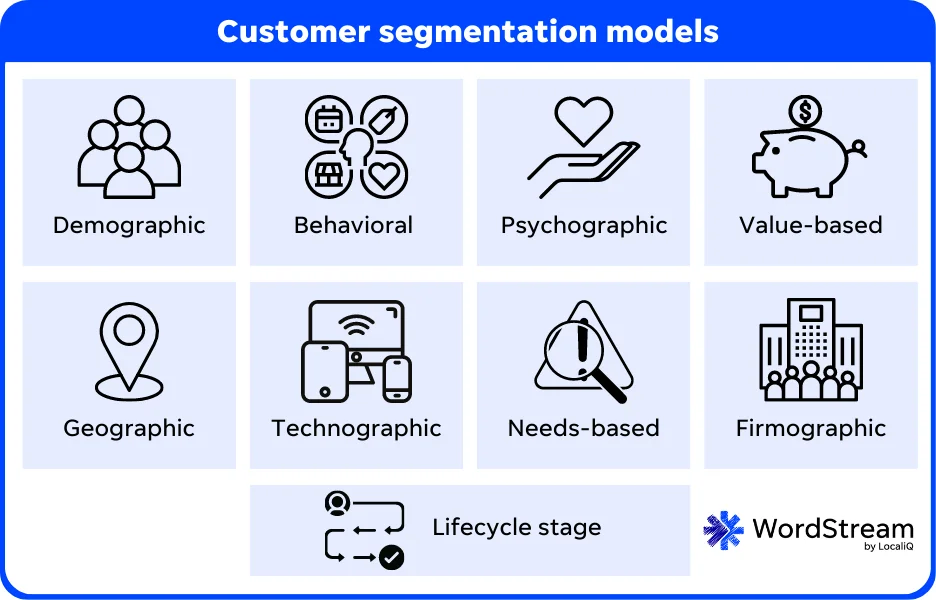
Data Collection and Analysis: Gaining Customer Insights
An essential part of any individualised marketing effort is the collection and analysis of customer data. By using tools such as surveys, analytics, and direct feedback, businesses can gather comprehensive profiles for each customer.
Once the data is collected, it can be analysed to uncover valuable insights into individual needs and preferences. Monitoring customer interactions helps refine your marketing strategy, ensuring it is continuously aligned with customer expectations. Ultimately, this results in improved satisfaction and loyalty, driving long-term success.
Personalisation: Tailoring Customer Experiences
At the heart of a one to one marketing strategy is personalisation. It’s about customising products, services, and marketing messages to align perfectly with the specific requirements of each customer segment—or even individual customers. Whether it’s sending personalised campaigns through email or offering bespoke promotional deals, personalisation ensures that every interaction feels relevant and timely.
The aim is to create unique customer experiences that not only drive conversions but also build lasting loyalty. A well-executed personalised marketing strategy offers customers a more meaningful connection with your brand.
Source: CMO by Adobe
Step by Step Guide to Building Your Individualised Marketing Plan
1. Ensure You Have the Right Technology in Place
Before embarking on your individualised marketing journey, it’s vital to ensure that your marketing technology stack can handle the complexities of data, segmentation, and automation. Without the right tools, scaling customised marketing strategies becomes difficult, time-consuming, and inefficient.
From content personalisation platforms to automation systems, you need a suite of technologies that can streamline processes and analyse large datasets with ease. Essential tools to consider include:
- Content personalisation software
- Product recommendation engines
- Marketing automation systems
- Data collection and analytics tools
2. Gather as Much Customer Data as Possible
Once you have the necessary technology in place, the next step is to collect customer data at every touchpoint in the buying journey. Whether it’s through email opens, link clicks, or shopping cart data, the more you know about your customers, the more effectively you can target them with tailored content, recommendations, and incentives.
Tracking this data enables you to refine your customised marketing strategy and deliver content that truly resonates with your audience. This data can also help segment larger customer bases, identifying trends and behaviours that will inform future strategies.
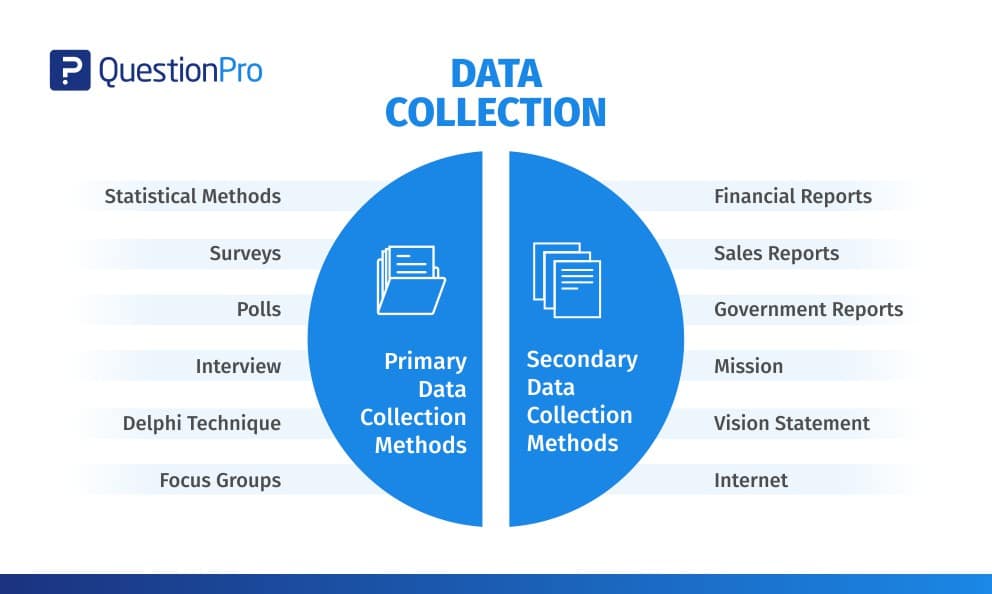
3. Spread the Personalisation Across All Channels
Now that you have rich data and dynamic customer profiles, it’s time to execute across multiple channels. Whether through email, social media, or web platforms, consistency in your messaging is key. By leveraging automation tools, you can easily integrate personalisation tokens across various touchpoints.
Incentive and recommendation engines can take previous customer behaviour into account to deliver the most relevant offers. The goal is to create a seamless experience, where personalised messaging is maintained across every channel.
4. Personalise Every Stage of the Digital Customer Journey
It’s essential to ensure that your personalised messaging covers the entire digital customer journey—from browsing to purchase. When a customer first visits your site, personalised recommendations or incentives can spark interest. For instance, showing related items through “Similar Customers Also Bought” messages can pique curiosity based on historical buying patterns.
However, the journey doesn’t end when an item is added to the cart. With 70% of online shoppers abandoning their cart, it’s crucial to re-engage them through reminder emails and incentives. The ability to transform one-time buyers into repeat customers is key to a successful one to one marketing strategy.
5. Continuously Optimise Your Personalisation Processes
Just like any other marketing tactic, personalisation strategies need to be regularly reviewed and refined. By running campaigns for several weeks and then analysing the results, you’ll be able to gauge the effectiveness of your efforts.
Continuous testing and optimisation ensure that your personalised marketing strategy remains aligned with your customers’ evolving needs. Additionally, don’t forget to double-check your technological integrations, ensuring all tools are working together to provide a holistic view of your data.
